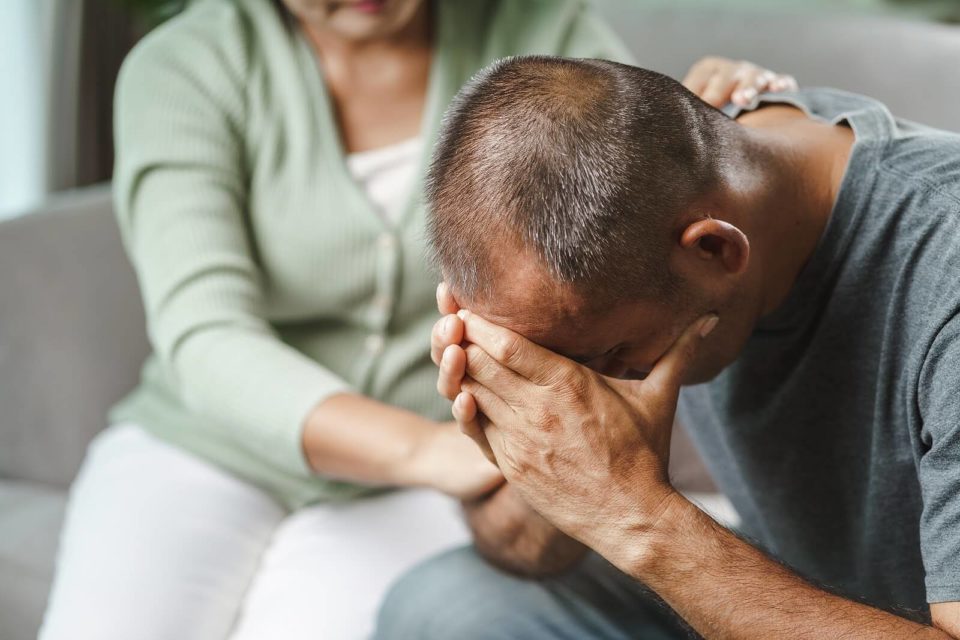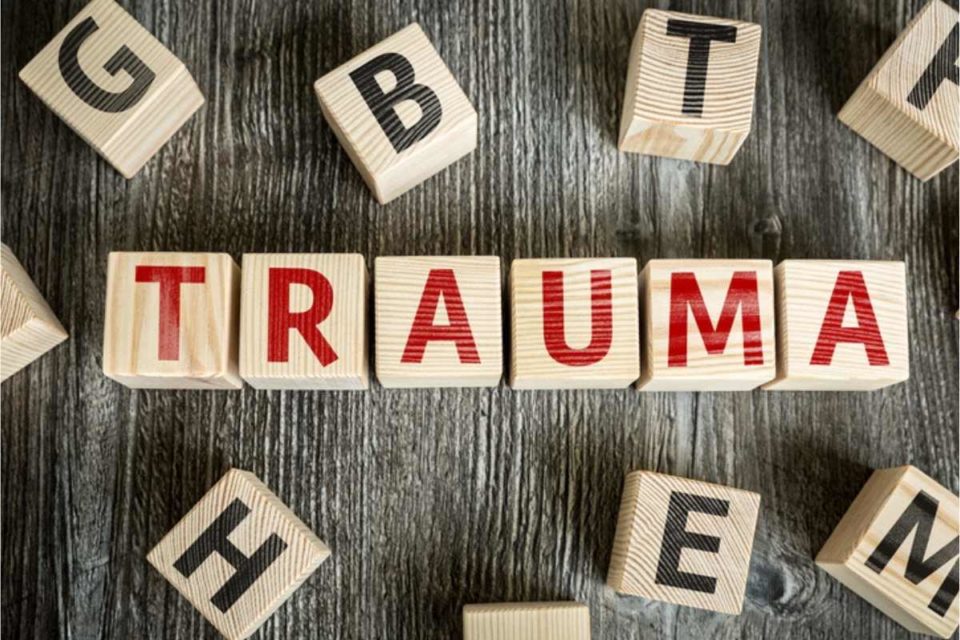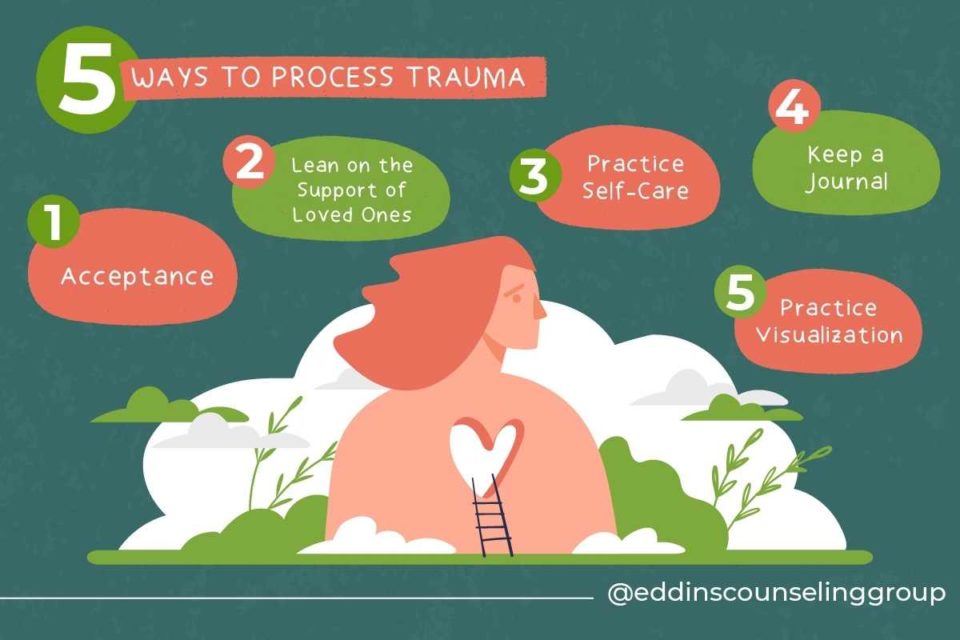June 16, 2022
How To Deal With Trauma & How It Lives In Your Body
Written by Sara Lane
Posted in Trauma, Grief & Loss and with tags: PTSD/Trauma
How Trauma Lives in The Body
About 70 percent of people endure at least one traumatic event in their lifetime. How this trauma impacts us can vary widely.
In many cases, the intensity of the trauma causes our brain to store it in fragments. It’s almost as if your brain tries to protect you from the memory. However, this dissociation ends up causing far more problems.
Unless and until the traumatic memories are effectively resolved, they are stored in your body. They re-appear as nightmares, flashbacks, intrusive thoughts, and perhaps Post-Traumatic Stress Disorder (PTSD).
In addition, they affect your body in several negative ways.
How Trauma Can Change Your Brain
The bulk of the damage takes place in three areas of the brain:
- Hippocampus: This is where you process and store emotions as well as memory. After a traumatic event, the hippocampus shrinks. As a result, your relationship with memories—and the feelings they provoke—becomes dysfunctional.
- Amygdala: As the center of creativity in your brain, the amygdala is also responsible for fixation and rumination. Trauma causes an increase in size and activity in this part of your brain. This may increase the likelihood of you obsessing over the past.
- Pre-Frontal Cortex (PFC): Under normal circumstances, the PFC is where you come up with a rational plan and logical organization. Trauma leads the PFC to decrease in function. This shift can cause impulsive and irrational behaviors to become the norm.
Stated simply, you can get stuck in a state of high alert. Your mind behaves as if danger is ever-present. In turn, this creates a broad range of physical problems.
How Trauma is Expressed By the Body
 Aches, Pains, and Tension
Aches, Pains, and Tension
Your body is receiving chronic warnings that risk is near. It prepares by tensing up and bracing for impact. Such a constant state of unexplained tension can exhaust and injure your muscles in ways that you may not easily connect to the trauma.
Numbness
Conversely, if our body gets non-stop warning signals, we may instead develop a very high pain threshold. Your brain numbs your pain receptors in a misguided attempt to protect you. This inability to experience normal sensations can add to the dissociation.
Sleep Disturbances and the Resulting Fatigue
It is common for someone with PTSD to have difficulty staying in a healthy sleep rhythm. Concurrently, this fatigues your body even more than it already is. Being in a steady state of hyper-vigilance is exhausting on its own. When you combine that with sleep disturbances, the result is very deleterious to your physical well-being.
Psycho-Somatization
This is the physical manifestation of suppressed emotions. When emotions are not expressed, they hijack the body. If you’re not ready or able to confront negative memories, they may be expressed in other ways by your body, such as:
- Severe, chronic headaches
- Skin issues
- Digestive problems
- Sexual dysfunction
Such trauma symptoms can cause further distress because their source is not apparent or obvious. It only adds to the heightened sense of danger you are feeling.
You Can Evict Trauma From Your Body
Trauma can be processed. It can be resolved. You can move forward without it inhabiting your body and causing daily problems. It begins with an acceptance that you need help.
Healing from trauma is not a solo act.
It requires the support and guidance of an experienced trauma therapist.
Eddins Counseling Group has worked with many clients who were struggling with a similar scenario. Using a variety of techniques and approaches, these clients can work through the trauma. Like them, you can thrive again. I invite you to reach out for more information on our trauma therapy and PTSD Treatment so we can get you started on this journey of recovery.
How to Process Trauma
Everyone, sooner or later, endures a potentially traumatic experience. It could be neglect, abandonment, or abuse. In other cases, the experience may involve illness, injury, or disability. Other factors might include crime, accidents, war, or natural disasters. If not processed and resolved, such an event can have serious long-term effects.
Fortunately, even trauma that occurred in childhood can be processed when you’re an adult.
In the presence of a skilled trauma therapist, this type of healing is not only possible. It is also common. With this in mind, let’s explore the impact of trauma and how to move on from its control.
The Impact of Trauma on Your Mind and Body
When you undergo intense stress, your brain initiates the fight-or-flight response. This reaction can be life-saving at the moment. However, once the stressor is removed, you should ease back into a more stable state.
In the case of trauma (repeated or one-time), the stress can be more than you can handle. For children, in particular, this can be the norm.
If you cannot process the trauma, there’s a chance you get stuck in a state of high alert. You can no longer tell the difference between safety and danger.
Stress hormones that could once help you now become an unhealthy presence in your bloodstream.
All of this adds up to a bevy of physical and emotional symptoms that may constitute Post-Traumatic Stress Disorder (PTSD).
These symptoms often include:
- Nightmares, flashbacks, and intrusive thoughts
- Social isolation
- Sleep disturbances
- Inability to trust
- High blood pressure
- Avoidance of anything related to the trauma
- Poor concentration
- Fatigue
- Unexplained aches, pains, and muscle tension
- Reckless behavior
- Digestive issues
- Thoughts of death and suicide
5 Ways to Process Trauma
1. Acceptance
It can feel impossible to understand your situation from your angle. Thus, a powerful step is to accept that you need trauma therapy and why. You must be willing to heal and commit to the process.
2. Lean on the Support of Loved Ones
This is very tough to do alone. Ask for help. If you feel you do not trust the people in your life, then consider connecting with a support group—online or in person. It can be a game-changer.
3. Practice Self-Care
Your mind and body have been through an ordeal. It’s time to heal on every possible level. A giant step in this direction is committing to a daily routine of self-care, e.g., sleep, eating, exercise, and stress management.

4. Keep a Journal
The simple act of writing (with a real pen on real paper) has been shown to help the processing happen; monitor your triggers, emotions, and progress. This journal will be quite useful in your trauma therapy sessions, too (see below).
5. Practice Visualization
Retrain your brain to be ready to live in your desired reality. You do not have to remain stuck in the past, re-living or desperately avoiding the painful details.
Get into the habit of allowing yourself to feel what it’s like to process and resolve the trauma as you move forward and thrive in your new life.
Do Not Go It Alone
This post is not meant to imply that this work is either easy or hard. That part is in the eye of the beholder. The points I am trying to get across are these:
- Processing trauma is necessary in order for you to heal.
- Processing trauma is not a solo act.
Trauma survivors need to work with qualified mental health trauma therapists. This collaboration is the proven path toward resolution, recovery, and healing. I would love to guide you along the way. Let’s connect for a free and confidential consultation soon.
Are You Ready To Start Trauma Therapy in Houston, TX?
Are you ready to finally address your trauma symptoms? We invite you to start with support from Eddins Counseling Group today. Our Sugar Land and Houston trauma therapists understand how difficult this process can be. We will be with you every step of the way through trauma therapy. Follow these steps to get started.
- Call us today to get a free consultation at Eddins Counseling Group
- Make your first appointment with one of our trauma therapists
- Start releasing the trauma that is stored in your body
Other Mental Health Services Offered at Eddins Counseling Group in Texas
At Eddins Counseling Group in Texas, we offer lots of options to fit your mental health needs. We have a Sugar Land or Houston therapist who can help you with counseling for children, teens, and adults.
Our services include anxiety treatment, depression treatment, disordered eating counseling, trauma therapy, ADHD treatment, grief counseling, and more! We also provide couples counseling and family therapy.
Access to counseling is important to us so we have three locations in Texas. Including Sugar Land, Houston Heights area, and Houston Montrose area. Plus, we provide all of our services through online therapy to Texas residents.
Additional Information on our Trauma Services:
- Trauma & PTSD Treatment
- Trauma-Focused Cognitive Behavioral Therapy (TF-CBT)
- Brainspotting Trauma Therapy
- Webinar: The Emotional and Physical Impacts of Trauma and How to Heal
- Webinar: Developmental Trauma and Its Impact On Your Relationships
- Webinar: Trauma Considerations for Children and Adolescents
- Webinar: Understanding Trauma and Its Impact On Your Body
Grounding & Self Soothing
Get instant access to your free ebook.


















